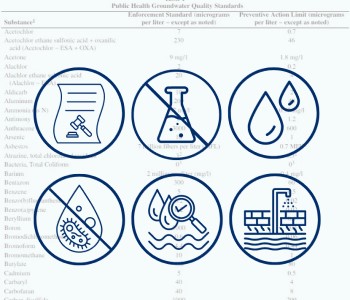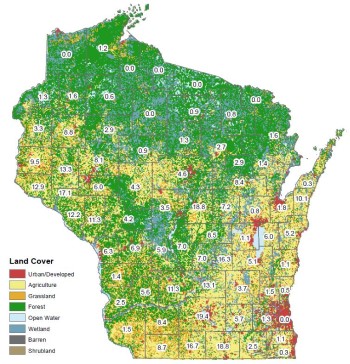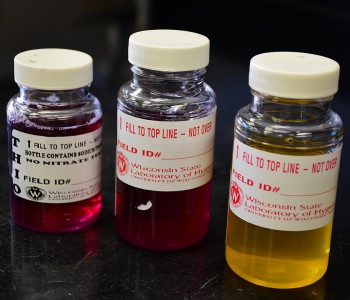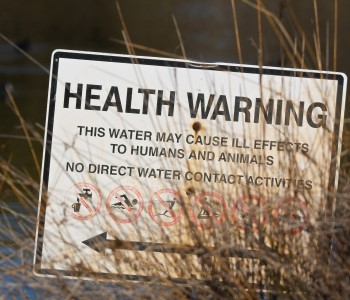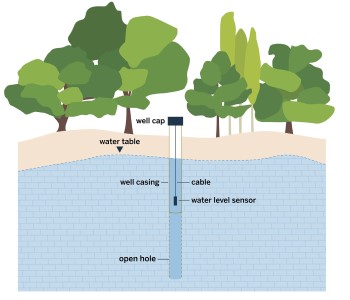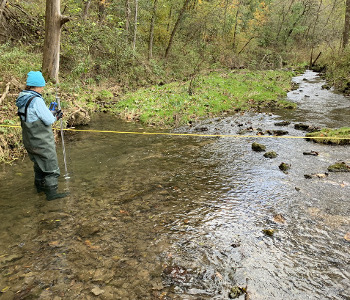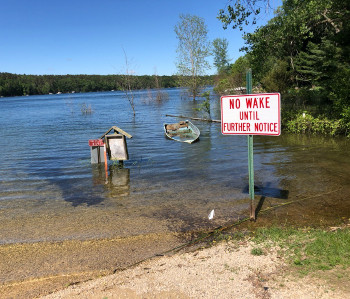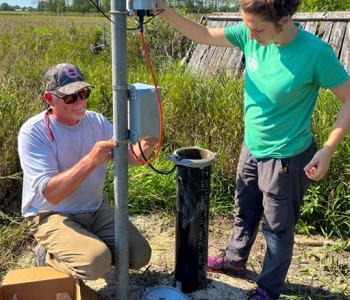Recommendations
GCC Report to the Legislature
The GCC identifies its recommendations for future groundwater protection and management. These recommendations include top priorities of immediate concern and ongoing efforts that require continued support.
Priority recommendations
Set new and revised health-based groundwater standard recommendations that are imperative for protecting public health and the environment.public health and the environment from PFAS, nitrate and other contamination. Wisconsin has a long and proud history of groundwater protection. Wisconsin’s groundwater law adopted in 1983 is held up as one of the nation’s model environmental laws in part because of its robust, science-based process for protecting the quality of our groundwater and public health. For 40 years, the groundwater law has guided the rule-making process that DNR and DHS follow, ensuring a scientifically rigorous review of available technical information and clarity on how recommended groundwater standards are selected. The last time DNR and DHS were allowed to make revisions or additions to groundwater standards was 2009. Since 2019, DHS has provided DNR with two sets of recommendations (Cycle 10 and Cycle 11) based on state regulatory program needs for 47 new or revised groundwater standards. These include standards for pesticides, per- and polyfluoroalkyl substances (PFAS), metals, volatile organic compounds (VOCs) and bacteria. However, in 2022 the Natural Resources Board (NRB) ended rulemaking before sending the rule package to the legislature which would have set standards for the 26 Cycle 10 recommendations. As a result rulemaking was paused on the Cycle 11 PFAS and pesticides. While a NR 140 rule change setting new standard for e. coli and a revision in how total coliform is handled were successfully concluded in 2023, the backlog of needed standards and revisions continues to grow. The GCC recommends the following action:
|
Implement practices that protect groundwater from nitrate, pesticides and other agricultural contaminants.over Nitrate Standard by County with Land Cover (Jan. 2022 - June 2023). Nitrate that approaches and exceeds unsafe levels in drinking water is one of the top drinking water contaminants in Wisconsin and poses known health risks. In addition, pesticides are estimated to be present in over 40% of private drinking water wells in Wisconsin. Areas of the state with a higher intensity of agriculture generally have higher frequencies of detections of pesticides and nitrate. Agencies should implement the strategies that lead to efficient use of nitrogen and careful or reduced use of pesticides in order to protect groundwater and drinking water sources. GCC member agencies have been and continue to work on multiple initiatives related to reducing the risk of high nitrate and pesticides levels in groundwater (see groundwater management sections – DNR, DATCP, UWS, WGNHS) but the problem still persists. The GCC recommends the following actions:
|
Address public health and environmental concerns regarding PFAS.private drinking water sources in Wisconsin. PFAS have been detected in both municipal and private drinking water sources in Wisconsin. Exposure to PFAS has been shown to have detrimental health effects, including the potential to cause cancer. The GCC recommends the following actions:
|
Ongoing recommendations
Without ongoing attention to the following needs, Wisconsin cannot address the priority recommendations or begin to understand emerging issues.
Evaluate the occurrence of viruses and other pathogens in groundwater and develop appropriate response tools.make people very sick and can result in death. Viruses and other microbial pathogens have been found in municipal and private wells, challenging previous assumptions about their persistence and transport. The GCC recommends the following actions:
|
Support the sustainable management of groundwater quantity.ensure sustainable water supply for human consumption, healthy ecosystems and economic growth; and to support sound resource management decisions. We must ensure that water is available to be used in Wisconsin. This will protect and improve our health, economy and environment now and into the future. The GCC recommends the following actions:
|
Continue to catalog Wisconsin's groundwater resources.in Iowa County. © DNR. Management and protection of Wisconsin’s groundwater resources requires publicly accessible, up-to-date data in order to foster informed decisions, not only on state policy matters but also for sound business decisions on siting or technology investments. The GCC recommends the following actions:
|
Evaluate the impacts of climate change on Wisconsin’s groundwater.levels at Fish Lake, a seepage lake near Hancock, WI. © DNR. Climate change is increasing the frequency and severity of weather patterns that produce unprecedented flooding or drought conditions. Severe flooding can affect groundwater quality, wells and water system operations. Additionally, land and water use patterns may also change and affect the groundwater supply. These may include biological or chemical contamination issues, or an increased demand for groundwater by agricultural, municipal, and commercial users. Public drinking water supplies as well as water-dependent industries need reliable estimates of these impacts in order to develop practical emergency response and adaptation strategies. The GCC recommends the following actions:
|
Support applied groundwater research in Wisconsin.Chase installing monitoring equipment in Door County. © Maureen Muldoon) Wisconsin is recognized as a national leader in groundwater research, which is appropriate given how uniquely important this resource is for public health, the economy and the environment in this state. For example, Wisconsin, leads the nation in the number of public water systems that rely on groundwater (more than 11,000). Over 97% of agricultural irrigation water and more than one third of the water used for commercial and industrial purposes come from groundwater supplies. And, many ecosystems in Wisconsin are strongly dependent on groundwater availability and groundwater quality. Wisconsin's reputation for groundwater research is largely due to the well–established joint solicitation process for groundwater research and monitoring projects coordinated by the GCC. This approach streamlines proposal writing and the review process and improves communication among agencies and researchers. Collectively, since its inception this annual joint solicitation has funded 501 groundwater research and monitoring projects and has helped establish Wisconsin as an international leader in groundwater research. The GCC recommends the following action:
|

